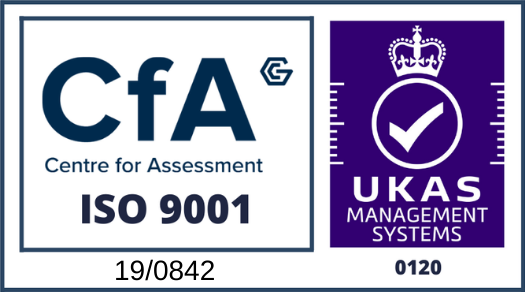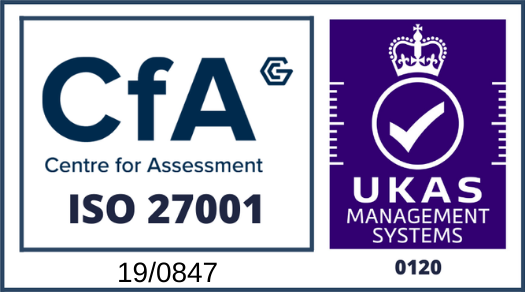Organisations across industries are leveraging artificial intelligence (AI) and machine learning (ML) technologies to optimise their operations, enhance customer experience, and improve business outcomes.
Open AI’s GPT-4 has brought a new level of sophistication to these technologies. This has opened up a world of possibilities for content creation, natural language processing, and even art.
The UK government recognises the potential of AI and has announced a £250m investment in AI and other technologies. Research also shows that use of AI could increase global GDP by 14% by 2030. These findings further highlight the transformative potential of this technology.
Here we explore how four industries are using AI and ML to transform their operations:
- Healthcare
- Manufacturing
- Agriculture
- Transportation
From predictive analysis and planning optimisation to natural language processing, AI is being harnessed to improve operations and achieve business goals.
1. AI in Healthcare
The UK government recognises the potential of AI in healthcare, with a recent investment of nearly £16 million into research. This investment enables healthcare organisations to develop and implement AI-based solutions for quicker and more accurate diagnoses, more effective treatments, and improved patient outcomes.
Predictive analysis is one area that is being used to identify patients who are at risk of developing chronic diseases. By identifying these patients early, healthcare providers can intervene with preventive measures and reduce the likelihood of these diseases developing.
For example, researchers at University of Florida and University of Washington have developed a tool to predict the likelihood that patients will develop sepsis within 12 hours of hospital admission.
The diagnostic tool relies on neural networks, previously developed to use the results from whole-blood RNA transcriptomic metric tests, to generate scores representing the likelihood of bacterial infection or 30-day mortality. By identifying these patients early, hospitals can intervene and reduce the risk of sepsis developing.
Machine learning models are also being used in medical devices to accurately predict things like the dose range that can be achieved for products receiving irradiation. This gives medical device companies the foresight necessary for planning against previously unknown challenges.
2. AI in Manufacturing
With an annual output of £183 billion, the UK manufacturing sector remains a crucial part of the country's economy. To stay competitive in the global market, manufacturers are constantly looking for ways to improve their efficiency and productivity. One solution that has gained traction in recent years is the application of artificial intelligence (AI) in manufacturing
A common application of artificial intelligence in manufacturing is predictive maintenance. This solution involves installing sensors on equipment to monitor its condition in real time. AI algorithms then analyse the data collected to predict when maintenance will be required. These machine learning solutions allow maintenance to be scheduled before any failures occur.
At a time where unplanned downtime costs manufacturers at least 50% more today than previously, this technology can significantly reduce unplanned downtime, and save manufacturers time and money.
The BMW Group is using machine learning algorithms to predict when maintenance will be needed on their machinery and equipment. Using these machine learning models allows for preventative, rather than reactive, maintenance. This approach has resulted in reduced downtime and increased efficiency. BMW uses similar algorithms to optimise their production processes, which reduce bottlenecks by predicting demand and ensuring that the right parts are available.
3. AI in Agriculture
By 2050, the World Resources Institute estimates global food production will need to increase up to 150%, creating a challenge for agriculture to meet the needs of a growing population. AI can help by providing farmers with data-driven tools to optimise production practices, contributing to a better future for agriculture.
Predictive analytics is one area where AI is being used to drive value in the agriculture industry. By leveraging data from a variety of sources, including weather patterns and soil conditions, predictive analytics can help farmers anticipate potential challenges and take action to mitigate them.
Precision agriculture can help farmers to maximise their yields and reduce waste by providing real-time insights into crop health and growth patterns. This can not only boost profits, but also help to ensure food security.
For example, one AI consulting company has developed an innovative AI system for crop management. The system fuses satellite, multispectral, and agronomic images to provide insights on field crop health and supply risks. Using AI-led deep learning algorithms, this system enables quick and efficient detection, identification, and monitoring of crop diseases and pests.
4. AI in Transportation
It has been estimated that between 80% to 90% of data generated and collected by organisations is unstructured. The transportation industry can use this vast amount of unstructured data to develop innovative AI and machine learning solutions for areas such as vehicle planning and freight synchronisation.
Using technology such as Google OR-Tools, AI-powered route optimisation can take into account factors such as driver availability, vehicle capacity, and road restrictions to create more efficient and cost-effective transport plans. Intelligent freight prioritisation can also factor in parameters such as shelf life, inventory levels, and delivery windows to ensure that the right products are delivered on-time.
Natural language processing (NLP) is also being used in the public transportation industry to improve customer service. Technologies like Microsoft LUIS enable developers to build conversational AI applications such as chatbots and virtual assistants.
The New York Metropolitan Transportation Authority (MTA) has previously used NLP chatbots to provide real time information about schedules, delays and service changes to commuters. As this technology continues to advance, these tools are sure to become available across UK transport providers soon.
Keeping up with AI and machine learning
Organisations should stay informed about the latest AI trends to stay competitive in their respective industries.
However, it is also important to understand whether AI is suitable for your needs. Taking the necessary steps to ensure that this technology is implemented with minimal disruption is crucial for optimal long-term success.
If you're looking to leverage the power of AI and machine learning to transform your business, Audacia can help. As a UK-based software development company and digital transformation service provider, we offer a range of AI solutions tailored to your business needs.
With significant experience working across a variety of industries, we can help you reach your goals with our expertise in AI consulting and machine learning services.
Contact Audacia on 0113 542 1300 or at [email protected] to find out how AI could deliver value in your organisation.


